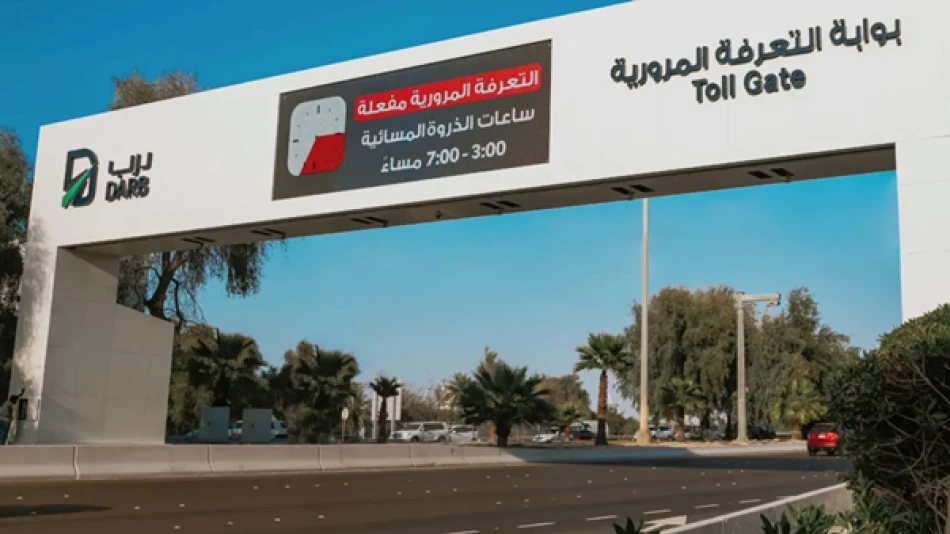
Abu Dhabi Mobility Authority Unveils New Toll Tariff Updates for Drivers in the Capital
Abu Dhabi Scraps Traffic Toll Caps in Bold Move to Combat Peak-Hour Congestion
Abu Dhabi is removing daily and monthly limits on its "Darb" road toll system starting September 1, 2025, marking a significant shift toward demand-based pricing to tackle traffic congestion. The changes extend evening toll hours and eliminate fee caps that previously protected frequent commuters from excessive charges, signaling the emirate's commitment to prioritizing traffic flow over affordability concerns.
Key Changes Transform Urban Mobility Strategy
The Integrated Transport Centre, operating under Abu Dhabi's Department of Municipalities and Transport, announced several major modifications to the toll system. Evening toll collection will now run from 3:00 PM to 7:00 PM, extending the previous timeframe, while morning hours remain unchanged at 7:00 AM to 9:00 AM, Monday through Saturday.
Most significantly, the system will abandon its current daily cap of AED 16 per vehicle and monthly limits of AED 200, 150, and 100 for first, second, and third vehicles respectively. This removes the financial safety net that allowed heavy users to pass through toll gates freely once they hit their monthly limit.
Pricing Remains Flat Despite Structural Changes
Individual toll charges will maintain the current AED 4 per gate crossing, suggesting authorities believe behavioral change will come from removing caps rather than increasing base rates. The system continues to exempt disabled individuals' vehicles, low-income families, senior citizens, and retirees.
Learning from Global Congestion Pricing Models
Abu Dhabi's approach mirrors successful congestion pricing strategies in Singapore and London, where removing price ceilings has proven more effective than incremental fee increases. Singapore's Electronic Road Pricing system, which operates without daily caps, has maintained traffic flow efficiency for over two decades by ensuring consistent cost pressure on frequent users.
The timing extension to 7:00 PM reflects modern work patterns where evening rush hour increasingly stretches beyond traditional 5:00 PM boundaries. This aligns with similar adjustments made in major global cities adapting to flexible work schedules and extended business hours.
Economic Implications for Commuters and Businesses
The removal of monthly caps fundamentally changes the economic calculation for daily commuters who previously planned routes knowing their toll costs would plateau. Business travelers and logistics companies operating multiple daily trips will face the most significant impact, potentially driving route optimization and schedule adjustments.
For investors, this signals Abu Dhabi's commitment to sustainable urban mobility revenue streams. Q Mobility, the ADQ subsidiary managing the Darb system, will likely see more predictable income flows without the revenue dampening effect of monthly caps.
Testing Ground for Regional Urban Planning
This policy shift positions Abu Dhabi as a testing ground for advanced congestion management in the Gulf region. With major infrastructure investments like the Etihad Rail network and ongoing smart city initiatives, the emirate is building an integrated mobility ecosystem that could influence urban planning across the UAE and neighboring countries.
The success or failure of this approach will likely determine whether other Emirates follow suit, making Abu Dhabi's traffic patterns over the next year a closely watched indicator for regional transportation policy.
Most Viewed News

 Layla Al Mansoori
Layla Al Mansoori






